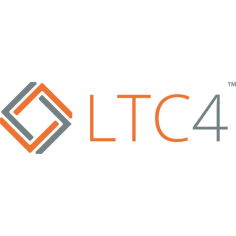Smarter not harder, the technology is on your side by LTC4
Over the past few years many lawyers recognized that their legal technology skills were inadequate in a world where they are often working remotely without much deskside support. Quickly realizing that they needed to educate themselves they began investigating new ways to learn. The onus was on them to quickly find ways of learning about the technologies they need now e.g. video conferencing tools like Zoom, Teams, etc.
Online tools can help but the technologies themselves are constantly changing so lawyers need to learn to embrace these changes themselves and to quickly adapt. That’s where the legal technology training professionals step in, no longer just training the features and functions but also teaching resilience to change and encouraging self-directed learning and the use of the wide range of tools, including AI.
We know that law firms invest vast sums in technology, it is often the major investment for a law firm yet it is rarely matched by similar investment in the delivery of appropriate training. To achieve a positive return on that investment requires a far greater emphasis on user adoption. User adoption of new technologies is often woefully inadequate, it can seem so much easier to keep working the same way as before! There is also increased risk associated with inadequate user adoption of technologies, particularly those which deal with data storage, cyber security, collaboration and the use of AI tools.
Training teams are developing and delivering short, effective, often remote, training sessions, recording and editing online videos and creating relevant just-in-time help topics. Improving skills and encouraging self-study will lead to a far more efficient workforce and greatly reduced calls to the Help Desk. Time wasted, time written off and lack of skill in a law firm have a major impact on a firm’s profitability. Teaching lawyers to become more tech savvy and adaptable is the only way for it to improve.
The 10 LTC4 workflow-focused Learning Plans provide a structure for technology training delivery which addresses the real-world skills needed today. They cover key areas like time management, cyber security, securely managing documents and emails, and hybrid working. The resulting LTC4 Certification demonstrates a firm’s commitment to technology competence and can even result in reduced PI insurance.In addition they ensure that new hires and trainees can quickly grasp the important workflows they will encounter at a time in their career when they are still comfortable about being assessed. Assessment is vital to ensure that new skills have actually been adopted.
Bar Associations and regulatory bodies around the world have recently recognised that well-structured technology education is as fundamental as legal knowledge and to demand it is incorporated in professional development.
LTC4 was established precisely to address the need for an industry standard, a Certification which would be recognised globally as a sign that an organisation is working to achieve competence. As new technologies emerge and innovation is embraced a level of competence with the fundamental systems in use day-to-day is even more essential.



